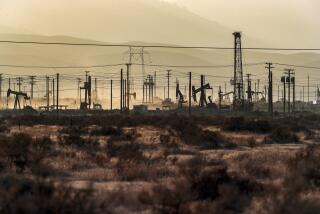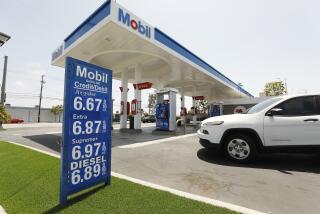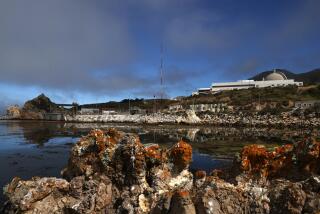California regulators approve battery storage to help avoid summer blackouts
State regulators have approved the purchase of battery storage for electricity to support Southern California’s energy supply, which faces potential shortages because of the troubled Aliso Canyon natural gas storage facility.
The California Public Utilities Commission wants Southern California Edison to expedite plans to acquire electricity storage using batteries to help prevent potential blackouts. The commission and other state energy agencies have warned that without the Aliso Canyon field, the state’s largest natural gas storage facility, Southern California could face blackouts during as many as 14 days this summer.
In addition to increasing use of battery storage, the energy agencies have urged consumers to look for ways to conserve energy.
See more of our top stories on Facebook >>
“Southern California faces a number of energy reliability challenges — for electricity and for residential heating — this summer, next winter, and at least for the next summer after that, all related to the loss of gas storage at Aliso Canyon,” commission President Michael Picker said of Thursday’s action. “Historically, our energy system in the L.A. basin was built around that facility.
“Now we’re doing what we can to expedite the next generation of energy solutions in that very constrained piece of California’s infrastructure,” Picker said. “This is one important part of the overall effort.”
The Aliso Canyon facility, owned and operated by Southern California Gas Co., drew national attention after a leak in one of its 115 wells last October. It took Southern California Gas four months to stop the leak and seal the well.
The leak forced thousands of residents in the nearby Porter Ranch community to flee their homes after complaints of illness.
SIGN UP for the free California Inc. business newsletter >>
Gov. Jerry Brown ordered a moratorium on injecting any more gas into the storage facility until it is deemed safe.
The utility company has been inspecting and testing the remaining 114 wells to ensure safety. But it remains unclear whether the gas still contained in the facility will be available during periods of high demand for natural gas by power plants and residential customers.
Critics of blackout warnings have argued that the state needs to seriously investigate alternatives to using Aliso Canyon. They have characterized the warning about blackouts as little more than a “threat” by Southern California Gas if the utility isn’t allowed to continue using the storage facility.
MORE FROM BUSINESS
Watchdog group shows ‘cozy’ emails between state regulators and utility executives
Uber and Lyft drivers are safer than the average American driver, according to new report
Pending U.S. home sales hit highest level since 2006
Follow me at @ivanlpenn
More to Read
Inside the business of entertainment
The Wide Shot brings you news, analysis and insights on everything from streaming wars to production — and what it all means for the future.
You may occasionally receive promotional content from the Los Angeles Times.











